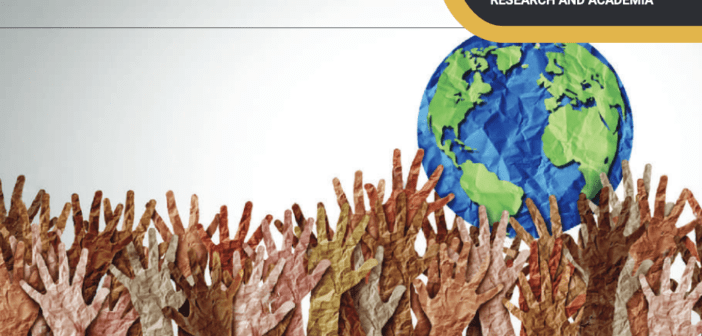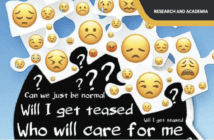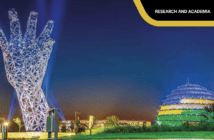By Joan Ogeto
Throughout history, a myriad of exceptional leaders have graced the global stage. Regrettably, a notable portion has left an indelible mark characterized by eccentricity and an excess of authoritarian tendencies. This disturbing trend has led to a global phenomenon where leaders, initially ushered in through democratic processes, later steer their nations toward authoritarian rule.
This erosion of democracy becomes more apparent when examining the state of democracy worldwide, as democratic indicators for the average global citizen have regressed to levels last observed in 1986. This decline in democratic values is not confined to a specific region, as numerous nations experience diminishing public trust in democratic institutions. The global dissatisfaction with democracy has been escalating since the early 1990s, stemming from both assaults on its integrity and challenges in navigating the distortions within electoral systems.
The recent surge in global populism has amplified concerns and discussions about a perceived crisis of democracy. This decline in democratic values is widespread, as evidenced by Varieties of Democracy (V-Dem), which reported in 2022 that 72% of the world’s population, equivalent to 5.7 billion individuals, resides in autocratic regimes. V-Dem stands out with its unique and comprehensive methodology, employing input from nearly 4,000 scholars and country experts to evaluate hundreds of democracy-related attributes. This extensive approach generates a global dataset from 1789 to 2022, revealing a stark reality: most of the world’s population resides in electoral or closed autocracies.
The roots of this crisis in representative democracy extend back to the 1980s, evolving throughout the 1990s and persisting into the 21st century. These trends underscore the inadequacy of representative democracy in the contemporary global landscape and prompt critical reflections on the future of democratic governance.
The exploration of autocratization considered the opposite of democratization, has evolved into a well-established realm of scholarly investigation. There is an increasing fascination with dissecting the ongoing transitions towards autocracy. Numerous instances have emerged across diverse regions, including Europe, Latin America, Southeast Asia, and sub-Saharan Africa, where governing authorities curtail their citizens’ political and civil rights. Concurrently, there is a systematic erosion of independent institutions aimed at bolstering executive power, manipulation of electoral processes, and deliberate constraints imposed on political diversity.
Democratic institutions face a risk from potential authoritarian leaders and parties. These entities aim to bring about an authoritarian shift in politics and society. However, robust counterforces are actively resisting and reversing such endeavours. These include independent media outlets, civil society organizations, democratic parties and leaders. It also comprises everyday citizens, state officials committed to democratic institutions, transnational activist networks, and international institutions at both national and supranational levels.
Autocratization is a broad concept encompassing multiple forms of change. This includes democratic regression or backsliding, where the core features of liberal democracy erode without necessarily transitioning to an autocratic regime. Additionally, it involves democratic breakdown, leading to the collapse of democracy, and authoritarian deepening, which refers to the reinforcement of severe characteristics within already autocratic regimes.
Democratic erosion manifests through a gradual degradation of essential democratic principles, often initiated by leaders who exploit legal and institutional frameworks for their gain. One common avenue is the restriction of political and civil rights, as incumbent governments may curtail freedom of expression, assembly, and association. This erosion is often accompanied by the manipulation of electoral processes, which undermines the integrity of democratic elections. These subtle or overt actions contribute to eroding public trust in democratic institutions.
Another prevalent mechanism of democratic erosion involves the gradual weakening of independent institutions designed to check and balance executive power. Autocratic-leaning leaders may strategically undermine the judiciary, legislative bodies, and independent regulatory agencies, consolidating power within the executive branch. This concentration of power allows for the circumvention of democratic norms, paving the way for establishing more autocratic governance structures.
Alliances with influential entities also facilitate authoritarian transformation. Leaders may garner support from foreign powers or oligarchical networks, creating a coalition to bolster their authority. This external backing can provide the necessary leverage to manipulate democratic processes or quash dissent, further contributing to the erosion of democratic norms. In addition, autocratic regimes often exploit economic vulnerabilities and social divisions within a nation. By manipulating economic policies to favour a select few, they consolidate support from influential elites while exacerbating socioeconomic disparities.
Recognizing the subtle shifts that characterize democratic erosion is paramount in safeguarding against the insidious transformation into an authoritarian regime. These changes may initially appear innocuous, manifesting through the gradual curtailment of political and civil rights, the manipulation of electoral processes, and the strategic undermining of independent institutions. However, it is crucial to remain vigilant and not be blinded by the seemingly incremental nature of these shifts. What may seem like isolated incidents collectively form the building blocks of an emerging autocracy.
Awareness of these early signs is akin to preemptively fortifying the foundations of democracy. The erosion of democratic norms, the consolidation of executive power, and alliances with influential entities may be deceptively subtle, but their cumulative impact is far-reaching. Failure to recognize these indicators could lead a nation down a dangerous path towards dictatorship. Therefore, cultivating awareness and actively protecting democratic values is essential to prevent the gradual descent into authoritarianism. Only through informed vigilance can societies hope to preserve the democratic ideals that form the bedrock of a free and just nation.
Resistance against autocratization involves a collective effort by interconnected actors aiming to impede, halt, or reverse the actions driving the autocratization process. Strategies contributing to resistance include building opposition coalitions, parliamentary boycotting, organizing demonstrations, and supporting opposition efforts abroad. It is essential to recognize that resistance actors may operate with varied motivations, extending beyond the simplistic division between authoritarian and democratic ideologies. Just as autocratization can align with various political ideologies, the opposition may arise from either pro-democratic normative preferences or pragmatic considerations related to power distribution.
Critical actors within state institutions at both national and sub-national levels play a pivotal role regarding institutional resistance. These institutional resisters, including judges from constitutional or supreme courts, members of independent bodies like anti-corruption authorities, and individuals within independent electoral authorities, wield power and competencies to ensure compliance with constitutional rules and democratic norms. Their actions can overturn laws, challenge abuses of power, and counter illiberal decisions, serving as crucial bulwarks against democratization attempts.
Existing studies show how these actors’ capacity to resist autocratization decreases as the regime becomes more authoritarian. In a liberal democracy with checks and balances and where power is fragmented, these actors constitute the first line of defence of democratic institutions. They possess resources, competencies, and legal and constitutional protection that minimize the cost of opposition to illiberal decisions by an authoritarian executive. Unfortunately, no democracy, not even the most established one, can entirely escape the possibility that, at some juncture and due to various reasons, a leader or political party with authoritarian inclinations might succeed in winning elections, rule the country, and carry out an attack on the rule of law and the democratic institutions that guarantee accountability.
The crucial question is: Is this scenario unfolding in your country? Throughout history, dictatorships share three defining characteristics, often rooted in what Joseph Goebbels, the Propaganda Minister of the Third Reich, termed the “Big Lie.” This concept asserts that if a lie is told on a grand scale and consistently repeated, people will eventually believe it. An illustrative example is the Nazis’ use of the blood libel myth to justify the persecution of Jews, falsely claiming that they murder non-Jews, particularly non-Jewish children, for ceremonial purposes. Violence stands as a fundamental element in such regimes. Authoritarians rely on willing accomplices within the press and government to succeed. The call for universal solidarity against this emerging form of fascism is critically urgent. As individuals witness the moral and political decay with astonishment and confusion, Ece Temelkuran emphasizes in her 2019 book “How To Lose A Country” that no mature democracy is immune to this potential madness. Therefore, the imperative is to address this catastrophic trend collectively through universal solidarity.
As we pass through the complexities of political landscapes, it is clear that the rise of autocratic tendencies and the erosion of democratic principles present formidable challenges. From the subtle dismantling of democratic institutions to the alarming ascent of populist leaders, the global stage witnesses a concerning trend. However, amid these concerns lie the power of collective resistance and the steadfast commitment of civil society, political activists, and journalists.
Their tireless efforts to safeguard democratic values, whether through building opposition coalitions, challenging illiberal decisions, or raising awareness, serve as beacons of hope. The imperative for universal solidarity against authoritarian forces is clear, recognizing that the defence of democracy requires active engagement, awareness, and a commitment to the principles that underpin a just and free society. As we steer the complexities of our political reality, let us remain vigilant, and foster a robust civil society that stands resilient against the encroachment of autocratic tendencies, ensuring that democracy continues to weave a narrative of freedom, accountability, and collective progress.
References
Acemoglu, D., & Robisnson, J.A. (2006). Economic Origins of Dictatorship and Democracy. Cambridge University Press.
Abramowitz. M. (2022). Democratic Solidarity Is the Key to Defeating Dictatorship. https://freedomhouse.org/article/democratic-solidarity-key-defeating-dictatorship
Bermeo, N. (2016). On Democratic Backsliding. Journal of Democracy 27(1), 5-19. https://doi.org/10.1353/jod.2016.0012.
Dangreau, F. (2012). How a Leader Turns To a Dictator? – Analysis of Kaddafi’s life-story through leadership theories.https://www.divaportal.org/smash/get/diva2:531797/FULLTEXT01.pdf
Evie, P., David, A., Fabio, A., Lisa, G., Tamara, K., Martin, L., Natalia, N., Marina, N., Yuko, S., Felix, W., & Staffan, L. (2023). Defiance in the Face of Autocratization. Democracy Report 2023. University of Gothenburg: Varieties of Democracy Institute (V-Dem Institute).
Temelkuran, E. (2019). How To Lose a Country. Fourth Estate.
Williamson, V. (2023). Democratic Erosion: The role of executive aggrandizement. https://www.brookings.edu/articles/democratic-erosion-the-role-of-executive-aggrandizement/
The writer is a lawyer-[email protected]




